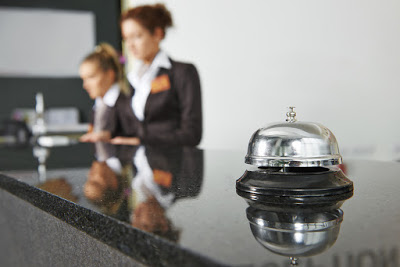A five-star hotel is preferred by one in five tourists who visit our country according to the CTO data. Free Famagusta is the first in hotel apartments, while the fact proves the general picture of the hotel industry, since due to the occupancy observed this year, visitors seem to be comfortable depending on availability.
The number of tourists who chose hotels for their stay increased by 20% last year as the total number of visitors increased. According to CTO data concerning arrivals in licensed accommodation, the largest increases were recorded in the five-star hotels by 34% and by 31,5% in the organized third-class apartments.
Residence mapping
More specifically, out of the 2.244.051 arrivals in licensed accommodation, the majority of tourists (1.578.154) stay in hotels, of which 40% stay in four-star hotels. It is impressive that 30% of tourists staying in a hotel, choose the five stars, with the largest increase being recorded in the five stars of Paphos by 66%. 402.860 tourists stayed in organized luxury apartments, of which 70% chose Famagusta, recording an increase of 16,4% from last year.
At the same time, 165.196 tourists stayed in tourist villages, 32.306 tourists in traditional settlements, 53.743 tourists in tourist apartments, starless hotels and hostels and 11.891 in tourist villas and camps.
Hotel apartments in Famagusta
In Famagusta most tourists choose three, four star or organized first class apartments. Of the 907.996 tourist arrivals in licensed accommodation in Famagusta, 60% stay in hotels, while a large percentage, 30,8%, choose organized apartments. Famagusta is the pre-eminent province in which tourists live in organized apartments, as in 2016 they were chosen by 280.420 tourists, while in Paphos only 79.983. One star hotels show a large increase of 139% since 2015, although the numbers are very low (879) This shows the high demand and the lack of beds recorded in the province of Famagusta.
The scepters of luxury
In Paphos, tourists mainly choose four- and five-star hotels. Of the 745.304 arrivals in licensed accommodation for 2016, 73% stayed in hotels. Four and five star hotels share equally (from about 220 thousand arrivals in each category). Accommodations in five-star hotels increased by 66% and by 55% in organized second class apartments (compared to 2015). At the same time, it is worth noting that Paphos was chosen by 5.273 tourists to stay in traditional settlements.
Regarding Limassol, 35% of tourists who stayed there chose five-star hotels. Of the 276.551 arrivals in licensed Limassol accommodation, 96.160 tourists chose five-star hotels and another 93 four-star hotels. The numbers of tourists who choose organized apartments in Limassol are low. In addition, although only 1.404 arrivals in traditional settlements of Limassol, however, the increase recorded in their number is the largest in all of Cyprus (21%).
The "poorest"…
Out of 187.336 arrivals at licensed accommodation in Larnaca, 42,5% of tourists chose four-star hotels. Accommodation in three-star hotels recorded a large increase (by 46%), while accommodation in one-star hotels decreased by 51%. Tourists who choose traditional settlements vote for Larnaca. Although only 14.133 are arrivals in traditional settlements, the increase recorded is of the order of 14%. Finally, out of the 105.115 tourist arrivals in licensed accommodation in Nicosia, tourists are evenly distributed in two, three, four and five star hotels (from 20-30 thousand).
Cheaper Cypriots
Only 13,5% of Cypriots prefer five-star hotels. Out of the 441.497 visits of Cypriot residents to licensed accommodation, 59.552 chose a five-star hotel, while the majority choose four-star hotels (103.170).
A large increase compared to 2015 was recorded in two-star hotels (17,6%) and organized third-class apartments (23,2%). Accommodation in traditional settlements increased by 11,2% (18.474). Finally, one in five residents of Cyprus chooses organized apartments for their stay, with most choosing organized first class apartments.
Per capita expenditure falls
Although the numbers are prosperous, however, revenues do not follow the pace of arrivals. Revenues from tourism for 2,36 amounted to approximately € 2016 million, recording an annual increase of 11,9%, while arrivals recorded an increase of 19,8%. Compared to 2013, revenues increased by 13,5%, while arrivals increased by 32,5%. Also, per capita expenditure has been declining since 2013. From € 868,2 in 2013, within three years the average per capita expenditure fell by 15%. In 2016, the average per capita expenditure reached € 741,7 from € 794,3 in 2015 and € 828,9 in 2014.
The number of illegal premises is unknown
Although the numbers shown in the report refer to the licensed accommodations, nevertheless there is a large number of premises that are not registered by the CTO. Many people rent apartments or houses for tourists on their own, but without paying the appropriate taxes or fees. An alternative rental trend is through the Airbnb platform.
"Nobody knows the size of the problem in Cyprus, however it creates unfair competition in the hotel industry", emphasizes the general manager of PASYXE Zacharias Ioannidis. "This phenomenon worries us and offends the favored class."
The general director of STEK, Chrysaimili Psilogeni, points out that this illegality and informal economy is rewarded by the absence of institutional, insurance and other specifications and mainly by the inability of the state until today to recognize and deal with the phenomenon. "The authorities must focus on controls and the imposition of sanctions on offenders with the common goal of defending the work and struggle of legitimate businesses, but also defending tourism in our country as a safe and quality destination."
In this context, he concluded, STEK is conducting research on the regulatory framework established by other tourist destinations since this phenomenon has been extensively occupied by many other tourist destinations, and not only.
Source: Phileleftheros / Dimitra Landou

